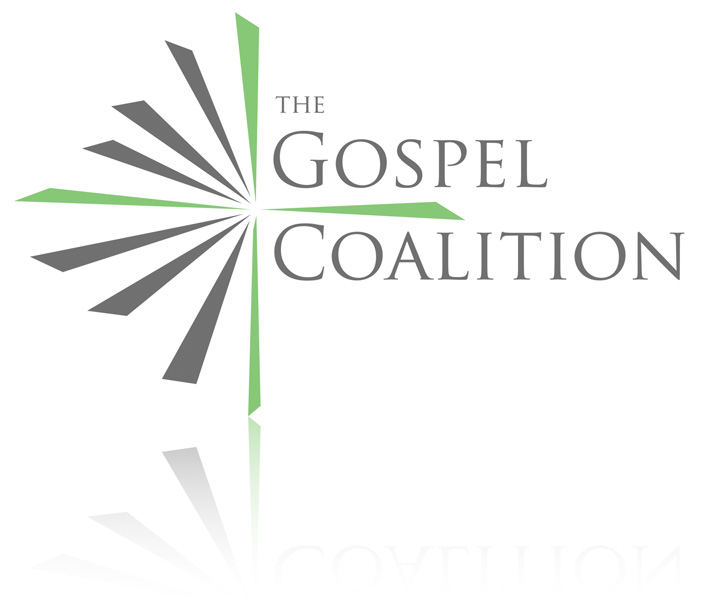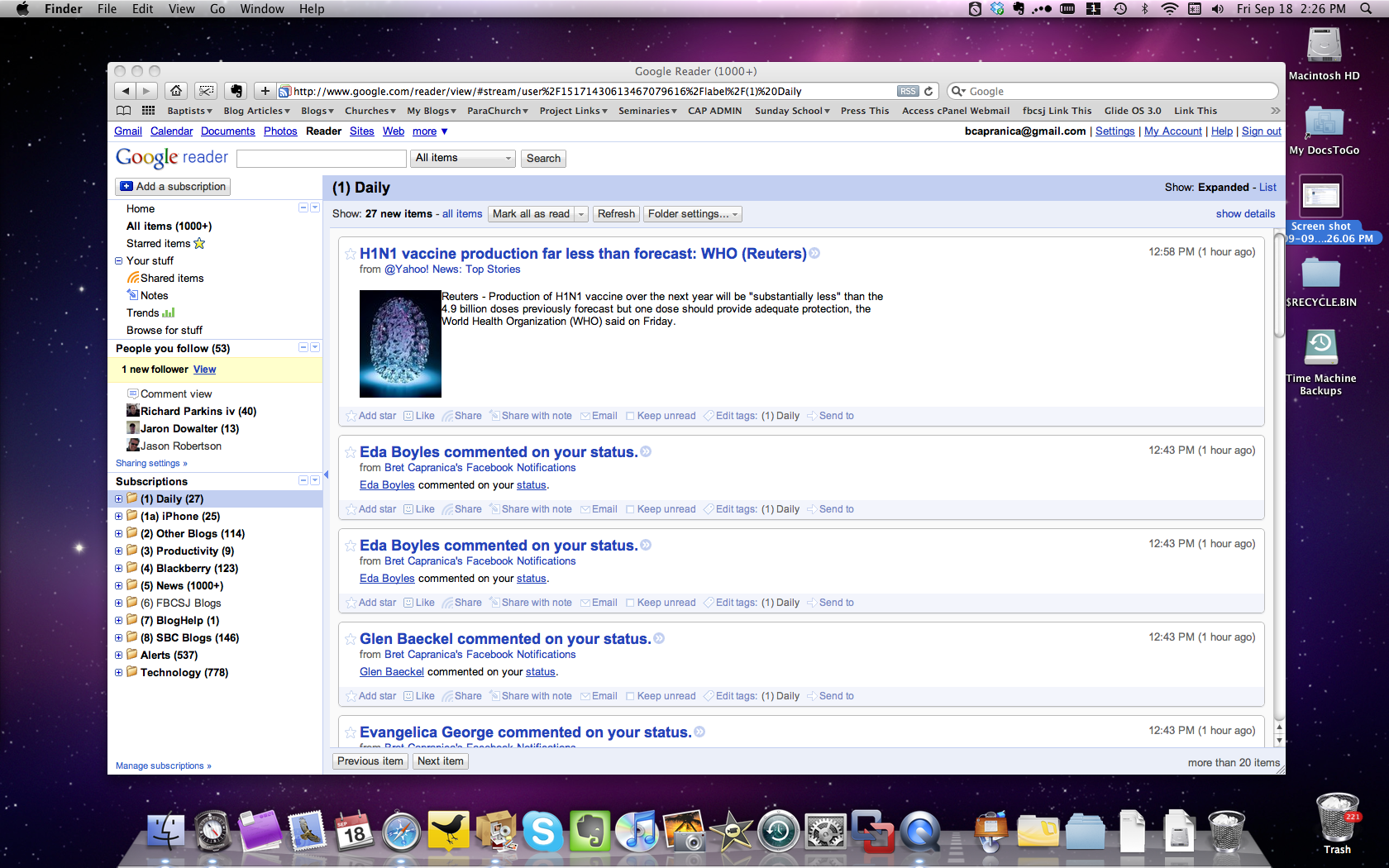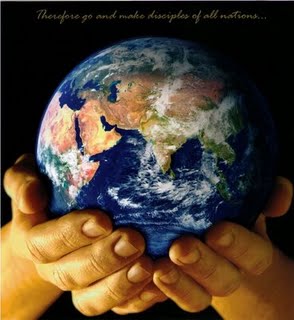
by Bret Capranica | Jan 28, 2010 | Featured Articles, Ordinary Pastor, Pastoral Ministry, Technology
I’ve been waiting for something like this – a handheld device that I could consume information very easily and most comfortably. Apple may have done it and I think it will have a number of benefits for those in pastoral ministry. If you missed it, here’s the video of the new Apple iPad: Will/Should ordinary pastors and people use the newly unveiled Apple iPad? This pastor probably will, and I think many, many will also. The Kindle has been a big draw among many in ministry and I can’t help but think that the iPad will be another Apple technological game-changer. Here’s a few reasons why I think so: 1. Magazines/Newspapers can now survive. The only reason I subscribe to a print newspaper right now, is because my wife wants the coupons from the Sunday paper. I NEVER read the print paper. But I do subscribe to a number of newspaper and magazine RSS feeds. In fact, I can subscribe to the sections of the paper I want and skip the rest. I noticed that my wife was already starting to clip coupons from the internet. Outisde of my wife’s coupon newspaper, I no longer have any subscriptions to any print publications – and I don’t miss the mess. However, I would be interested in reading papers and magazines on an electronic device that I could hold in my hand and was bigger than my iPhone. Especially if I could cut and paste quotes and sections into Evernote and tag them. That would help me in quickly clipping, filing, and finding quotes and illustrations for sermons and doing so...

by Bret Capranica | Dec 14, 2009 | Pastoral Ministry
This is an excellent Question/Answer discussion on the issue of scholarship and the pastorate. It’s worth the 25 minutes to watch or listen to it. How important is it for a local church pastor in a small town/city to pursue theological depth and...

by Bret Capranica | Sep 19, 2009 | Featured Articles, Ordinary Pastor, Pastoral Ministry, Technology
In this post I want to review a few applications every ordinary pastor (or person) can readily make excellent use of – and the best news is that all of them are free. While the web can be a major distraction for productivity, it can also be an amazing tool for getting things done. Here are tools from the web I use every week (some almost every hour): Safari Web Browser: I have been a Firefox fan for a long time. I loved the various plugins available that gave me greater connection to social media like Twitter. However, I’ve found that having constant connection to social media while working on high priority tasks on the web is too distracting, so I really use few plugins on Firefox any longer. The new Safari 4.0 I have found to be faster than Firefox. It certainly loads faster and is speeder in browsing the web. It also has a cleaner interface than Firefox. I have gone back and forth with Firefox and Safari, but tend to find Safari to handle my needs more simply and faster than Firefox. Email. I have all of my e-mail accounts dumping into my Gmail system. Our church uses Gmail with our own domain name. We can have access to one another’s calendars on the web or on our iPhones. Gmail via the web has been my mail client of choice for months. It loads very quickly and I have instant access to all my mail. I can quickly mark all of my mail read and star those I want to follow up on. I have a general rule that I respond to...

by Bret Capranica | Sep 14, 2009 | Featured Articles, Ordinary Pastor, Pastoral Ministry, Technology, Time/Life Management
[YouTube Video] Hey everyone, today’s blog post (and a few others this week) is a screen cast from my desktop in my study at home. I am currently using a 2.4 GHz iMac. I also have a MacBook Pro for portability (I’m hardly ever without my laptop) and its set up exactly like my iMac. What do I find to be some of the best applications I tend to use every week? Which are some of the most helpful to me as a pastor? This week I’ll be taking a look at my desktop and sharing with you the apps that find their way into my workweek. In general, just take a look at my doc (the bar of icons at the bottom of my screen). I don’t have any on there that I don’t regularly use. I’m going to give a quick overview today and then throughout the week, I’ll screen cast some details on those that I find most helpful. Finder. The way you find your way around the Mac environment is basically through the “Finder.” It’s comparable to Windows Explorer in the Windows environment. Pathfinder (instead of finder). It is much more versatile and worth the small amount it costs. It makes Windows Explorer and Mac Finder look useless. Safari (I’ve left Firefox behind for the most part). Google. For e-mail, calendar, contacts, chat, and tasks. Also Reader. Few Google docs. I will review a number of the web applications (WordPress, Picasa, etc.) that I use all the time. Dropbox. This is an excellent file sharing and synchronizing software. You can share any files with anyone,...

by Bret Capranica | Aug 26, 2009 | Featured Articles, Pastoral Ministry, Southern Baptist Issues
Much has been said and written about the recent Great Commission Resurgence in the Southern Baptist Convention. Some of the key leaders of our denomination have prayed for, planned for, spoken to, written about, advocated, and lobbied for this present movement. I respect and trust many of the men who have so far provided GCR leadership. I have no doubt in my mind that without some significant changes in approaches and emphasis, the SBC is in for some difficult days ahead; some suggest extinction. I am no influential voice within the SBC. I am an ordinary SBC pastor. My church is not significant and we have many weak areas of ministry. My thoughts are limited. Obviously, I have not been in any back room discussions or present for any significant open discussions about the details of where the GCR plans to take us. But, like any and every Southern Baptist, I have a few thoughts. For the sake of my own conscience, to stimulate my own thinking a bit more, and to conduct this discussion within my own circles, I offer the following thoughts. What Concerns Me About the Future of the SBC. Character. I met Adrian Rodgers once. He was gracious to conduct an informal question and answer session while at The Master’s Seminary in the late 90’s. I had an opportunity to ask a question of the one who was the first president of the Conservative Resurgence and the first SBC president I sat under (1988). I asked Dr. Rodgers, “What do you see as the most pressing issue facing the future of the SBC?” He didn’t even pause to consider it. He quickly...

by Bret Capranica | Aug 11, 2009 | Featured Articles, Pastoral Ministry, Prayer
Here again are a few notes I took while on a recent planning retreat from John Piper’s Brothers We Are Not Professionals. This time on how ministry itself can quickly become an enemy to our primary priorities, namely, prayer: Chapter 9 – Brothers, Beware of Sacred Substitutes 59 – Ministry is its own worst enemy. It is not destroyed by the big, bad wolf of the world. It destroys itself. 60 – Charles Spurgeon put it like this: “Those incessant knocks at our door, and perpetual visits from idle persons, are so many buckets of cold water thrown upon our devout zeal. We must by some means secure uninterrupted meditation, or we shall lose power.” Without extended and consecrated prayer, the ministry of the Word withers up and bears no fruit. Without extended, concentrated prayer, the ministry of the Word withers. And when the ministry of the Word declines, faith (Rom. 10:17; Gal 3:2, 5) and holiness (John 17:7) decline. Activity may continue, but life and power and fruitfulness fade away. Therefore, whatever opposes prayer opposes the whole work of ministry. 61 – But the apostles would not yield to the temptation. This must mean that prayer demanded a large part of their uninterrupted time. If they had thought of prayer as something you do while washing dishes or cooking (or driving a car between hospitals), they would not have seen table-serving as a threat to prayer. Prayer was a time-consuming labor during which other duties had to be set aside. 62 – So the apostles were saying: No Matter how urgent the pressures upon us to spend our time...













